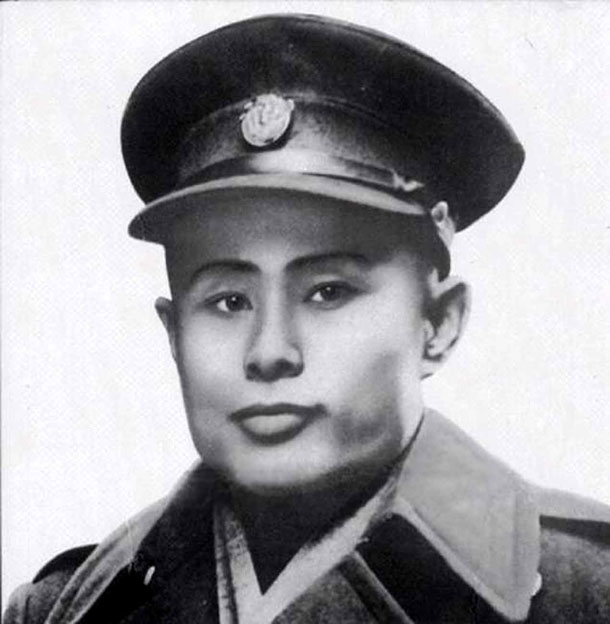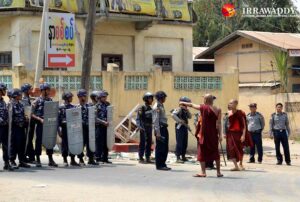1. Excerpt from Aung San’s 1947 Speech
Context: At the 1947 constitutional reform conference, Delegate U Ba Cho proposed designating Buddhism as the state religion. Aung San responded:
“Sir, our aim is not to win popularity. If we pursue measures that favor one religion over another, our country will soon collapse like broken pottery.
Since ancient times, Muslims have lived here, alongside the Baptics Christians and other early settlers who worshipped spirits, even Christians among the highlanders under the British. They are all our citizens. If, before securing freedom, we subjugate them and impose Buddhism as the state religion, we will become unworthy—even a dog would would be better than us.
Think of the country, not religion. We must unify all ethnicities and faiths under one political identity. If you want Buddhism to be the state religion, declare the country a Buddhist state—just don’t involve me.”
2. Aung San’s 1946 Mandalay Speech on National Unity (“Zaya Ditha”)
Context: At a 1946 conference at Shwedagon Pagoda, Aung San articulated his vision of unity:
“Changing how history remembers us: race, religion, and nation won’t persist on their own; they mix and spread. No country has only one ethnicity, nor is there only one religion within a group.
Americans and the British, separated by language, share common beliefs. In the Soviet Union, ethnicities are alike, but languages differ. People bond over shared experiences—suffering, joy, cooperation. Identity then becomes a shared legacy, inviting unity.
Race, religion, and language matter, but above all is a spirit of togetherness.
Today, global interaction allows foreigners to preserve their identity while living among others. Whereas in the past, race divided, now it unites. This shows national identity evolves.
Beware of misuse: extreme patriotism can lead to fascism, as seen in Germany’s collapse into Nazi terror. So let our national pride uplift, not destroy. Speak with openness and tolerance.”
Key Takeaways for Myanmar Today
Aung San opposed any state religion, prioritizing unity over religious supremacy.
- He envisioned a pluralistic union rooted in shared history, not religious or ethnic exclusivity.
- He warned against extremist nationalism and fascism as threats to society.
His inclusive, anti-racist vision remains highly relevant given today’s inter-communal tensions.
Continuation of Aung San’s 1946 Speech at the Shwedagon Conference (January 20)
“… While matters of ethnicity, faith, and language hold importance, the essential principle endures: a spirit of peaceful cooperation, embracing both good and bad, forms the eternal foundation of unity.
Regarding shared identity: when people collectively experience hardship and joy, and benefit from each other over long periods, they come together as one – a bond deeper than any single race or creed.
At that conference, I explained to the clergy:
‘Religion alone does not complicate society; it’s those who rear lives upon religion without regard for others who do. We are not opposed to believers making livelihoods through faith—this has happened throughout history.
In Europe, monks and princes lived side by side; here, ethnic states revered royal traditions. In colonial times, missionaries, officials, and traders all cooperated under their banners. At every period and in every region, people have earned their living through religious devotion.
Today, even those drawing livelihoods from religion fall into two categories: one who live by religion yet ignore its moral obligations; and another that sincerely advances their faith while maintaining respect for worldly affairs.
In our country, monks of great virtue have upheld noble deeds throughout history. They taught our people, rural and urban, nurturing literacy and culture.
Because of their selfless service, our society has elevated its moral character and civility. We owe them profound gratitude.
As the majority, Buddhists bear a special responsibility: if, over 2,500 years, we have preserved our faith while resisting external pressure, then Buddha’s light can shine most brightly in the modern world.
Therefore, I nominate our venerable monks—not because they merely represent religion, but because they exemplify dedication, compassion, and the power to heal division.
If they speak of unity, love, national harmony, and just liberty—meaning freedom of faith, of expression, and relief from insecurity—then they serve both spiritual and national interests.
Our monks are bound by the vow: ‘Ātappaṃ ca Sampādethā’—strive diligently and cultivate the world in wisdom. May they lead our Myanmar generation to embrace justice, peace, and unity.”
Why This Matters for Today
- Faith and livelihoods are not enemies—they have coexisted harmoniously across cultures and centuries.
- Buddhists and other Myanmar faith communities have historic bonds supported by compassion and mutual respect.
- Aung San emphasized righteous spiritual leadership: monks guiding society towards unity—not exclusivity.
- Myanmar needs this inclusive, dignified vision now, to heal religious and ethnic divisions.
This translation is based on the original Burmese drafts recorded during the 1946 and 1947 constitutional conferences.
Translations performed to reflect the accuracy and context of historical speeches.







